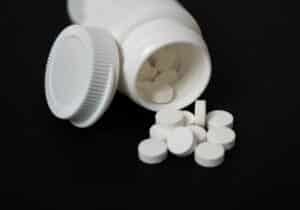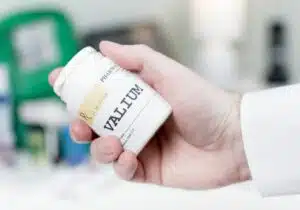Parenting a teenager can be an emotionally draining and difficult experience, and parents often worry about their children’s health – both physical and mental. Among these worries is substance abuse, with teens’ increasing reliance on drugs and alcohol as a way to cope with the stressors of daily life. With this in mind, it is important for parents to consider if their child may be at risk for developing adverse long-term effects from their substance use. Additionally, parents should know when to recognize the signs of substance abuse so they can seek treatment at a professional adolescent treatment facility.
Potential Risks
The adolescent brain is still in a stage of development, and heavy substance use can impede this progress. Teens who abuse drugs or alcohol are at risk for developing mental health issues such as anxiety, depression, and even personality changes due to the disruption of normal brain development. In addition, those teens who develop an addiction to substances may suffer from long-term physical effects, including heart damage, a weakened immune system, and liver malfunction.
Contributing Factors
Various factors can increase the risk of experiencing long-term damage due to adolescent substance abuse, such as any family history of addiction, mental health issues, and environmental influences. If a teen is exposed to any of these risks, it’s important for parents to intervene early on by seeking help from an adolescent treatment facility and a professional addiction specialist in order to prevent potential harm that could arise from prolonged drug use.
Physiological Vulnerability
People who start drinking or using drugs at a younger age are more likely to develop an addiction and experience potential physical harm as a result. Teens may be more likely to experience adverse long-term effects from substance abuse due to their still-developing bodies, volatile peer environment, as well as the increased likelihood of developing chronic mental health issues.
Substances Used and Frequency of Use
Teens who use drugs such as cocaine, heroin, or methamphetamines are more likely to experience adverse effects due to their intense psychotropic effects. Additionally, the frequency of substance abuse and the duration of use both play into how much damage could be incurred; teens who have used substances for longer periods of time are at greater risk for developing physical and mental health issues than those who have only recently started using drugs.
Family History and Genetics
It is important to note that family history and genetics can have an impact on adolescent outcomes as well. Studies have found that those teens who have a parent or other close relative with an addiction are more likely to develop an addiction themselves, leading to potential long-term physical and mental health consequences. Additionally, genetic predispositions to certain conditions, such as schizophrenia or bipolar disorder, can increase the likelihood of developing mental health issues related to substance abuse.
Environmental Factors
Environmental factors such as violence or instability at home, peers who use drugs, and lack of positive mentors can increase the risk of adolescent substance abuse. These risks should be taken into consideration when assessing potential adolescent harm from drug and alcohol use.
Ultimately, it’s important to understand the potential long-term effects of adolescent substance abuse so that proper interventions can be put into place. Without this knowledge, teens may suffer irreparable physical and mental damage due to their drug use; it is essential for parents to remain vigilant and seek help if their child is at risk or already abusing.
Signs That Your Adolescent May Be Using Drugs
The adolescent years can be very difficult, and, as such, teens may turn to drugs in order to cope. It is important for parents to recognize the signs of adolescent substance abuse so that they can intervene if necessary. Common signs include:
- Changes in behavior or attitude
- Withdrawal from family members or activities
- Decrease in academic performance
- Mood swings
- Physical changes such as rapid weight loss or gain, red eyes, or unexplained bruises
- Slurred speech
- Ongoing fatigue
- Paranoia or irrational behavior
- Lack of hygiene
- Unusual smell on breath or clothing
- Secretive behavior
- Unexplained need for money
- Missing prescription drugs
- Physical complaints such as headaches, nausea, and vomiting
- Increased use of incense, room deodorizers, and other air fresheners
If you notice any of these changes in your adolescent’s life, it is important to communicate your concerns, seek professional help from an adolescent treatment facility, and take steps to ensure your adolescent’s safety.
What Steps Can Parents Take?
First and foremost, it is important to establish open communication with your adolescent in order to better understand why they are turning to drug use. Additionally, it is essential that you seek professional help; adolescent treatment facilities specialize in helping young people address their issues with substance abuse and other related mental health concerns. It can also be helpful to seek out a support group if you are looking for additional resources or advice on how to deal with adolescent drug abuse.
Lastly, it is important to set firm boundaries and consequences in order to discourage drug use while at the same time providing emotional support and understanding. By taking these steps, parents can ensure that their adolescent receives the help they need to make positive changes in their life.
Adolescent Treatment Facility in Chattanooga, TN
Iris Wellness Group is an adolescent treatment facility in Chattanooga, TN that specializes in helping adolescents and their families address issues related to substance abuse and mental health. Our experienced professionals provide individualized treatment plans for each adolescent, combining evidence-based therapy with fun activities designed to equip them with the right coping skills.
In addition to substance use disorder treatment, we also offer family counseling services to help parents better understand and support their adolescent throughout recovery. If you or someone you know is struggling with adolescent substance abuse, please don’t hesitate to reach out to us today.










